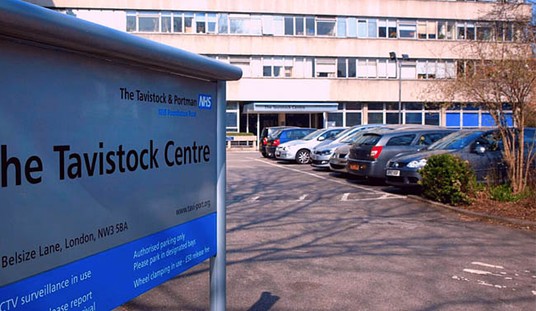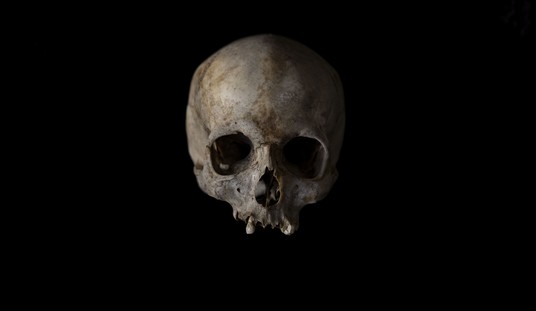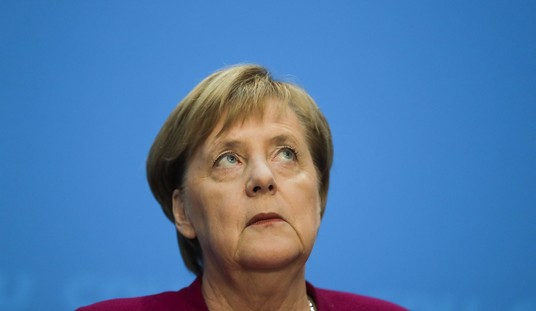I had an odd moment today reading this Salon piece because within it is a paragraph or two I could have written and probably have said a dozen times:
I have friends who have referred to their abortions in terms of “scraping out a bunch of cells” and then a few years later were exultant over the pregnancies that they unhesitatingly described in terms of “the baby” and “this kid.” I know women who have been relieved at their abortions and grieved over their miscarriages. Why can’t we agree that how they felt about their pregnancies was vastly different, but that it’s pretty silly to pretend that what was growing inside of them wasn’t the same? Fetuses aren’t selective like that. They don’t qualify as human life only if they’re intended to be born.
When we try to act like a pregnancy doesn’t involve human life, we wind up drawing stupid semantic lines in the sand: first trimester abortion vs. second trimester vs. late term, dancing around the issue trying to decide if there’s a single magic moment when a fetus becomes a person. Are you human only when you’re born? Only when you’re viable outside of the womb? Are you less of a human life when you look like a tadpole than when you can suck on your thumb?
This was the exact thought process that led me to the exact opposite position. I, too, noticed a distinction between how women approached an in-utero child when they wanted the child and how they felt about it when the pregnancy was unexpected and unwanted. Logically, it made no sense to me that the mother’s disposition should change the biological disposition of the baby. Therefore, it made no sense that it should change the ethics of the situation.
But Mary Elizabeth Williams goes a whole different direction, encouraging the pro-choice side to embrace the possibility that life begins at conception, which she imagines will allow them to gain some kind of lost rhetorical ground:
Of all the diabolically clever moves the anti-choice lobby has ever pulled, surely one of the greatest has been its consistent co-opting of the word “life.” Life! Who wants to argue with that? Who wants be on the side of … not-life? That’s why the language of those who support abortion has for so long been carefully couched in other terms. While opponents of abortion eagerly describe themselves as “pro-life,” the rest of us have had to scramble around with not nearly as big-ticket words like “choice” and “reproductive freedom.” The “life” conversation is often too thorny to even broach. Yet I know that throughout my own pregnancies, I never wavered for a moment in the belief that I was carrying a human life inside of me. I believe that’s what a fetus is: a human life. And that doesn’t make me one iota less solidly pro-choice.
On one hand, I truly appreciate her honesty— both for its boldness in its literal brutality and in the same way I wish gun-control advocates would just say they want to ban all guns if they want to ban guns. Then at least we’re having an honest conversation. There’s a reason the pro-choice movement must euphemize itself to within an inch of its life— because many people don’t want to be on the side of not-life. In any other article, I’d assume “not-life” is a term meant to mock what pro-lifers believe of pro-choicers, but Williams offers such a clear argument on behalf of an actual not-life position, I’m not sure. At any rate, Williams dispenses with the euphemism, and gives us a look at a very different kind of pro-choice message— like an Honest Movie Trailer for left-leaning politicians. “So, abortion ends a life. So what? There are a lot of lives that aren’t very important.”
Speaking of drawing “stupid semantic lines” and “trying to decide if there’s a single magic moment when a fetus becomes a person,” doesn’t this position just require Williams to draw even more untenable lines where a life becomes important enough to save? That’s the argument Katrina Trinko makes:
By this same logic, isn’t infanticide also fine and dandy? After all, if we’re talking about autonomy, kids aren’t exactly independent as soon as they are born. No infant can take care of themselves. And even later on in childhood, children rely heavily on the adults in their life to provide shelter, food, and emotional support. What about kids and adults who become disabled in life? What about quadriplegics? They’re not going to be able to take care of themselves. Is it okay if we just off the lot of them? Heck, what about needy friends who seem to be falling apart unless we talk to them regularly and console them? Okay to just shoot a couple of them so that we don’t have the burden? Should we ship the grandparents that spent all their money and are now financially dependent on us to the local executioner?
Yes, if the fetus is a life — and a human being — and not a clump of cells, that makes a huge difference. No one would ask a woman to respect the rights of a clump of cells. But it is valid to ask her, difficult as it is to have an unwanted pregnancy, to realize that the death of the child — the child who was totally innocent and has done nothing except be conceived — is not an appropriate way to handle this.
So. What? I’ll hand it over to you guys.







Join the conversation as a VIP Member